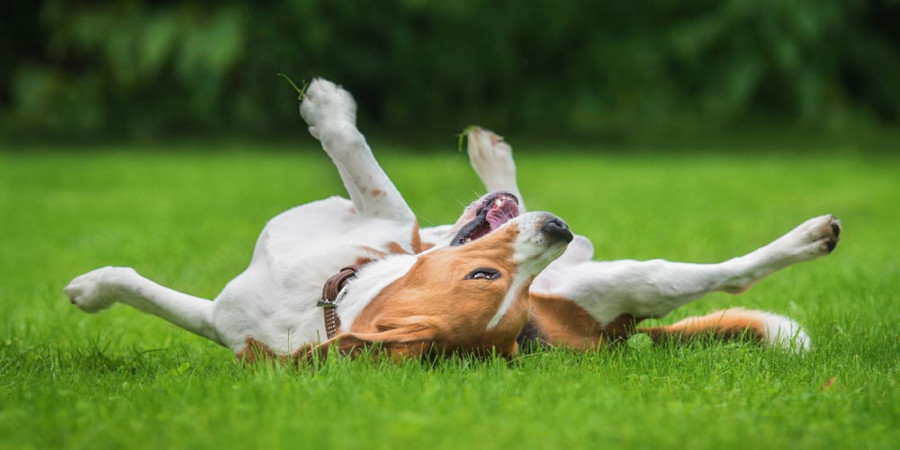

Why Dogs Roll Around After Eating: Exploring the Behavior
Have you ever noticed your furry companion engaging in a vigorous post-meal roll on the carpet or in the grass? This seemingly peculiar behavior is quite common among dogs and can have various reasons behind it. Here's a look at what might be motivating your dog's after-dinner gymnastics:
Possible Reasons for Post-Meal Rolling
- Seeking Comfort: Just like we might shift positions on the couch after a big meal, dogs may roll around to find a more comfortable spot to settle in. Rolling can help with minor bloating or discomfort caused by eating.
- Spreading Their Scent: Dogs have a complex sense of smell and use scents to communicate. Rolling after eating could be a way for your dog to pick up other scents and spread their own. This can be a form of territorial marking or a way to let other dogs know about their meal.
- Itching and Scratching: Sometimes a good roll is simply a way to scratch an unreachable itch on their back. The texture of grass or carpet can be particularly satisfying for dogs.
- Masking Scent (Ancestral Instinct): In the wild, dogs may have rolled in dirt or other substances to camouflage their own scent, making it easier to hunt prey or avoid predators. While less relevant for domesticated dogs, this instinct may still linger.
- Pure Joy: Dogs sometimes do things simply because they find it enjoyable. A post-meal roll might just be a way for your dog to express contentment and release playful energy.
Should You Be Concerned?
In most cases, rolling around after eating is harmless behavior. However, there are a few instances where it might be worth paying closer attention:
- Excessive Rolling: If your dog seems to be rolling compulsively or in an agitated manner, it could indicate an underlying issue like allergies, a skin condition, or even discomfort.
- Rolling in Unsavory Substances: While some dogs may be content rolling in grass and dirt, others have a penchant for less pleasant things like feces or dead animals. This could pose a health risk, so monitoring and discouraging this behavior is important.
Tips
- Observe your dog's behavior: If you're concerned about your dog's rolling, observe them closely. Is it accompanied by other symptoms like excessive scratching or licking?
- Consult your veterinarian: If the rolling seems abnormal or accompanied by other concerning behaviors, it's always best to consult your veterinarian to rule out any underlying medical issues.
References
- Peeva: Why Does My Dog Roll Around After Eating? Decoding Your Dog's Post-Meal Rituals https://peeva.co/blog/dog-roll-around-after-eating/
- Wag! Walking: Why Do Dogs Play After Eating https://wagwalking.com/behavior/why-do-dogs-play-after-eating
- Rover.com: Why Do Dogs Roll in the Grass (and Other Gross Things?) https://www.rover.com/blog/why-dogs-roll-in-the-grass/
Remember: While some post-meal rolling may be explained by simple causes, it's always a good idea to be observant of your dog's overall behavior. If anything seems out of the ordinary, don't hesitate to seek professional advice.
Popular articles

Apr 11, 2024 07:40 PM

May 25, 2024 08:09 PM

Apr 11, 2024 07:22 PM

Apr 10, 2024 07:59 PM

Mar 14, 2024 07:53 PM
Comments (0)